The past few weeks have seen the numbers of confirmed Covid-19 cases rising in Singapore, and with the local spread of the virus has come heightened fear.
This has manifested in fear-mongering fake news, mass panic-buying of masks and food, and, most ironically, the stigmatisation of the very people at the frontlines of the crisis — healthcare workers.
On Wednesday, Feb. 12, Grab announced the launch of GrabCare, a dedicated, round-the-clock, on-demand service to enable healthcare professionals to find rides to and from hospitals more easily.
In its pilot phase, GrabCare, which officially began running on Valentine's Day, currently serves the National Centre for Infectious Diseases (NCID) and Tan Tock Seng Hospital (TTSH), although Grab plans to expand its service to other hospitals.
Some 2,000 drivers signed up to the project, and two of these, whom I sat down with, are Mohamad Hisam Bin Abu Bakar and Lam Wai Lek Kelvin.
Why they signed up
Hisam has been driving with Grab for almost two and a half years.
The 39-year-old was previously a prison officer for 15 years before moving on to an oil and gas trading company. As the industry wasn't doing so well in 2015, he became a Grab driver.
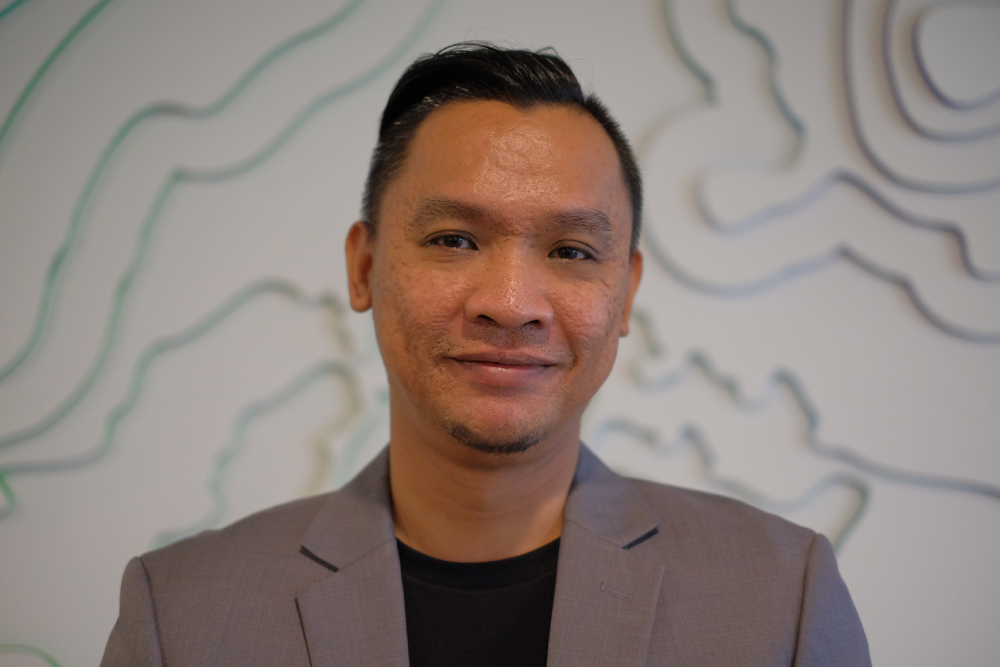 Photo by Rexanne Yap.
Photo by Rexanne Yap.
He says he signed up to the scheme with the intention of giving back to society:
"For me, I think, with the current social stigma [against healthcare workers] and things like that, we've been hearing, I feel that we need to come forward lah. Because these people are already helping us, so we should also do our part and not let them suffer this social stigma, you know? And back to the main point again, it's really contributing to Singapore lah, as a whole."
He cites his background a civil servant as one factor that has made him understand the need to help, saying, "I think it's still in me, lah, even though I'm no longer in the uniformed service."
Lam, 44, has been driving with Grab for slightly over three years and has a very personal reason for signing up for GrabCare: he missed his own father's passing by just a few minutes.
Still haunted by this memory, he firmly believes no one else should have to go through that.
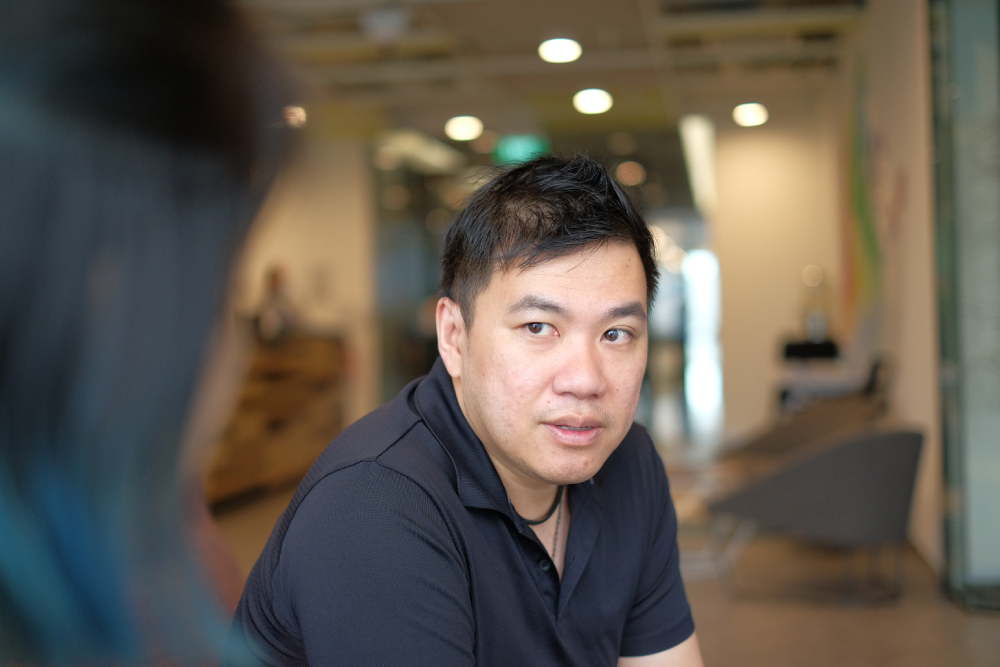 Photo by Rexanne Yap.
Photo by Rexanne Yap.
As a result, his personal ethics, even before the creation of the GrabCare initiative, have caused him to never reject or cancel a ride to a hospital.
"Anyone trying to book a Grab to go to the hospital, it's probably something pretty urgent. If not, why would anyone want to go to the hospital, right?
Or, if they are working there, they're going to go there and save somebody or make sure somebody feels better, you know. To me it's just wrong to cancel any trips to a hospital right from the beginning."
"Morally wrong" to discriminate against healthcare workers
Both Hisam and Lam are frustrated by the discrimination and indignity healthcare workers have faced despite their crucial roles in the ongoing outbreak.
This is particularly pertinent to Lam, whose wife recently gave birth to a healthy newborn the previous week — of course, with the help of doctors and nurses.
He laments that it is "morally wrong" especially to kick nurses off public transport.
"Right now, with the additional screening and effort to take care of this virus, they're putting extra long hours, without the additional manpower...
So, as a society, as a community, we can't just leave these people to fight the war and take care of us, and leave them alone to their devices.
As drivers, we have our role in the community. It's still a decent job; it's to fetch people to where they need to go, to fetch them home to their families."
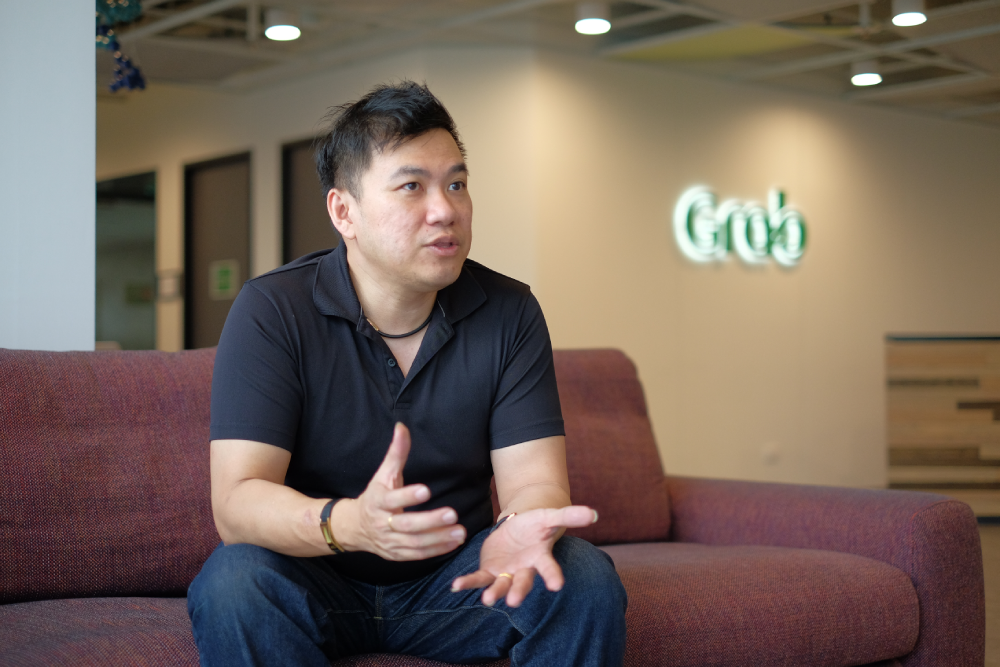 Photo by Rexanne Yap.
Photo by Rexanne Yap.
In fact, of all people, Lam says he would trust healthcare staff to know how to disinfect and take care of themselves.
As for Hisam, his widened perspective of the outbreak comes courtesy of a cousin who works as a nurse manager at KK Women's and Children's Hospital. He also admits that he might find himself among those stigmatising healthcare workers if he didn't have that connection.
"You know, it doesn't mean that suddenly the world come crashing down and, you know, everything comes to a halt. It's still a normal operation per day lah. You know, we still go out and drive and pick up passengers.
And for them is really like a normal routine, providing healthcare every day. Nothing much has changed lah. I mean, aside to the heightened situation now, nothing much really has changed."
At the same time, those working in healthcare have had to pull longer shifts and be on high alert, even having their annual leave frozen, which makes it all the more important for us to empathise, he adds.
How meeting GrabCare customers has changed their view
Lam and Hisam had each driven one passenger on GrabCare in the three days between the launch of the program and sitting down to speak with me.
Hisam didn't speak much with his passenger, discerning that she had just finished her shift and was visibly tired.
"Sometimes non-communication itself tells you a lot", he says.
That experience reminded him that doing this gives him the chance to interact with the frontline healthcare workers firsthand:
”Sometimes when you see them really tired after their shift, ah, it really sinks in how we sometimes take things for granted.
We are out there, you know, sometimes making certain comments about what they're doing here without really knowing what they are facing."
Lam's passenger, an administrative staff heading home after finishing her screening shift at TTSH around 11pm, told him how hard it had been to get rides before the GrabCare initiative started.
She said many of her colleagues found themselves walking over to nearby buildings to call for rides, just so drivers would accept their bookings.
Some did the same the other way round too, she added — indicating a nearby location as their drop-off point and then walking over to the hospital.
Even then, she told Lam, drivers have cancelled rides when they pulled up and saw them in their hospital uniforms.
Keeping themselves and their families safe
Neither Lam nor Hisam are themselves very fearful of the Covid-19 virus, although they both recognise that this outbreak should not be taken lightly.
Both do still emphasise the importance of preventative safety measures to keep themselves safe.
Hisam admits his wife has been very concerned ever since the virus hit our shores, however, even before the GrabCare initiative rolled out and he joined it.
He says she often reminds him to wear a mask, but he says wearing one throughout his shift "can be a pain, suffocating at times".
With the welfare of his wife and nine-year-old daughter in mind, though, he always makes sure to go straight to the shower once he reaches home. He also washes his clothes separately from the rest of his family.
Similarly, Lam doesn't buy into the mass fear that many seem to be feeling, but at the same time he does feel a bit worried for his wife and newborn baby.
He says his wife is very understanding and supportive of his line of work because she used to be a Grab driver too — pointing out with a laugh that that was how they met: on a Grab forum.
But this is also why his wife understands what he goes through and does, and trusts him to take the necessary steps to keep himself and their family safe.
"It's just a timely reminder that we've all been slacking on hygiene. Washing our hands is something we should be doing all the time. Eating properly, having a good immune system and resting well. These are the things that we should do, it's an everyday thing. Then suddenly this virus just reminded us to do all these things".
Among the group of drivers Lam works closely with, which Hisam is also part of, they constantly remind one another to wind their windows down after a job, sanitise their hands before touching their faces, and open the air-conditioning vents so the air doesn't circulate within the car.
Lam also wears a mask — even though it doesn't offer complete protection — when he drives.
"It's like bringing a knife to a gunfight. Better a knife than going barehanded", he quips with a laugh.
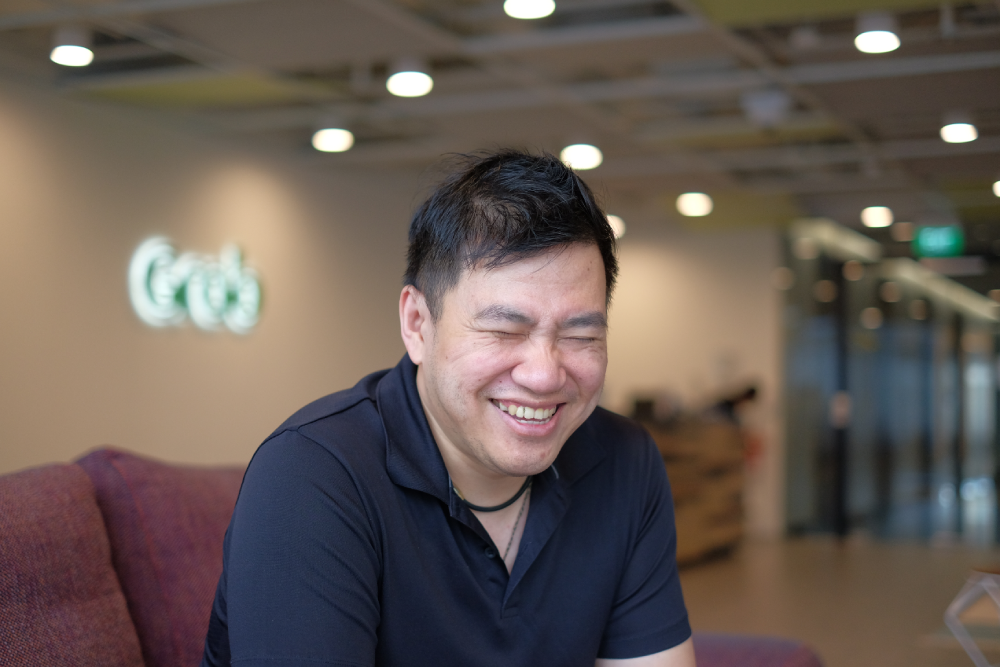 Photo by Rexanne Yap.
Photo by Rexanne Yap.
What is important ultimately, Lam says, is that we should be careful, not fearful.
The fear, he believes, comes from a lack of knowledge about the virus. For example, while dengue fever has been a serious issue in Singapore, people don't fear it as much because they feel like they understand it.
"People tend to fear the unknown and new stuff they don't understand", he says. "The best way, I think, is to educate. Once people know of this, they know how to tackle it, they'll be a lot less fearful of it lah."
Lam has experienced firsthand the effects of the panic-buying this fear has caused: right before meeting me, he was out shopping for antiseptic lotion for his wife's fresh labour wounds, but couldn't find any despite scouring an entire mall.
He has also been unable to buy alcohol swabs his diabetic mother-in-law needs for her insulin jabs.
"We all should just do what we can as a whole community to fight this together, not fight each other lah!"
Economic impact on their business
Another ramification the virus has on the lives of drivers like Hisam and Lam is an overall drop in business.
Because more people tend to be working from home and leaving the house less often in general, ridership has seen a severe decrease.
The decline in the number of tourists here is also very obvious to drivers, says Lam:
"The zoo is totally empty. Gardens by the Bay, there's no traffic jam going every night.
Airport arrival halls are quite empty, even on the weekends. Last night (Sunday night), barely 20, 30 people standing on the arrival hall for pickup, whereas usually any point in time there's 50 to 100 people waiting for Grab."
Lam also noticed an overall fall in both the number of jobs and the fares he has collected — within Lam and Hisam's group of drivers, the estimate is around a 30 per cent drop.
Online, he has seen drivers complain about business dropping by 40, even 50 per cent, although he notes these might be part of a "vocal minority" and not necessarily representative.
Hisam agrees, but considers himself lucky to have their support group, in which they teach one another how to drive better and share strategies to cope when times are hard.
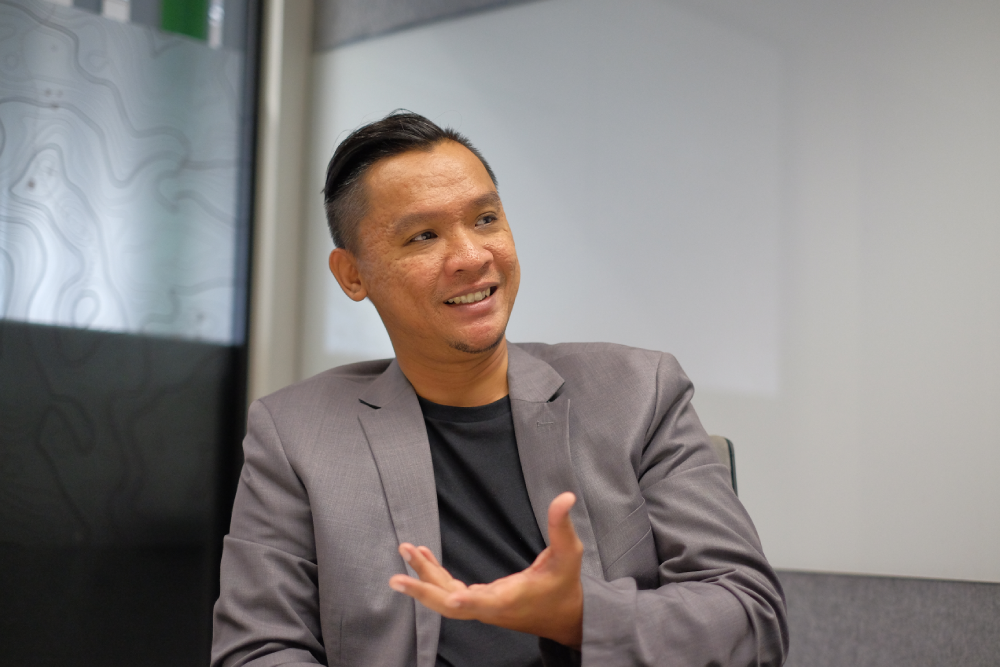 Photo by Rexanne Yap.
Photo by Rexanne Yap.
Hisam copes by setting daily targets when he drives. He has found that while he has to drive more, he has managed to meet his targets, so he hasn't seen a downsizing of his income yet.
For example, if he could normally hit his target in 10 jobs, he now has to do 13 or 14 jobs to achieve the same goal.
He says he's been able to fit these extra jobs within the same timeframe, so there hasn't been much of a need for him to drive longer hours, doing so by taking shorter breaks and not being picky about jobs:
"When times are hard, and wherever you are, if there are jobs there, just do it. If you have the luxury of time to go and explore out further for better fares, then do it. Otherwise, with limited time, just make do with what there is."
Encouraging other drivers to sign up for GrabCare
Right now, though, Hisam and Lam hope more drivers will join the GrabCare scheme. At the moment, their experience has been that they tend to get bookings from hospitals that are far away, and give very low fares.
Lam gives me an example: a booking he had from town to Orchard Road — only a few kilometres away — was S$26, while his next GrabCare booking from Tan Tock Seng Hospital to Sembawang was only S$16 in comparison.
In those kinds of situations, he says, many drivers would find it hard to accept the ride, and he completely understands where they're coming from — they have to feed their own families.
Hisam shares with me that within their group of friends, they encouraged one another to sign up for GrabCare for the dual purpose of doing their part for the country and hitting their respective targets.
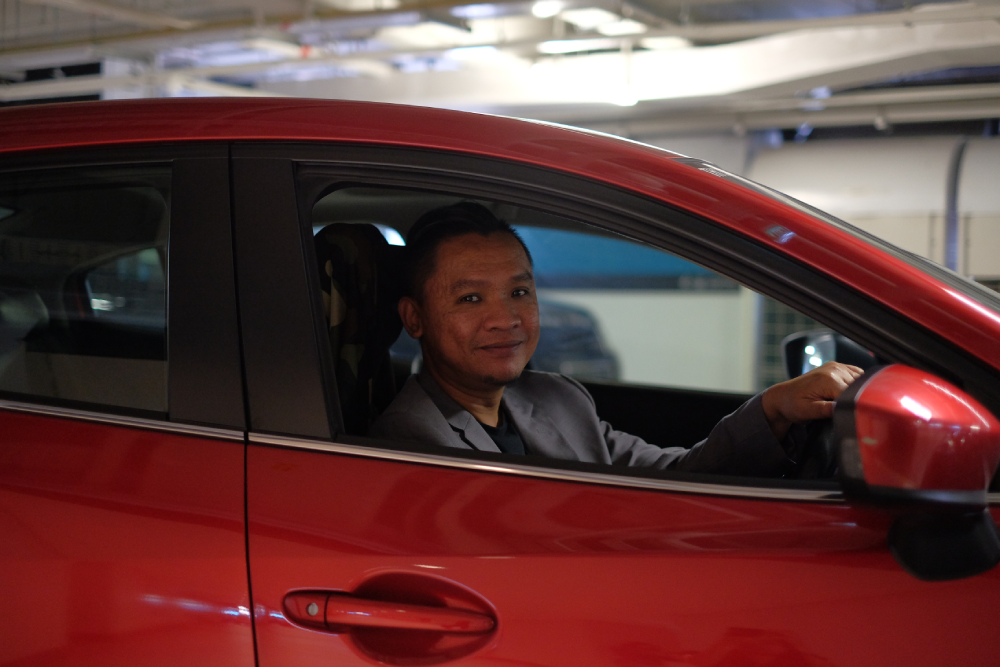 Photo by Rexanne Yap.
Photo by Rexanne Yap.
That being said, he gets why some may fear joining the scheme.
"We understand that, probably their priority lies elsewhere, like safety of their family, their own wellbeing... That's why I say there's no right or wrong, really. It's really about what you want," he says.
Nonetheless, he hopes to see more Grab drivers signing up to help:
"I believe if, let's say, more drivers were to sign up for this, it would be good because we can get these healthcare workers back to their home on time, and get them back to where they're working on time.
All this is just a numbers game lah. The more drivers you have on the road, the higher chances these workers will get a ride.
So I really call on those who haven't signed up to do so lah. I mean, it's for a good cause anyway, so why not?
And the important part is, it's still a paid service, right? It's not free. So why not?"
Stories of Us is a series about ordinary people doing extraordinary things. Be it breaking away from conventions, pursuing an atypical passion, or making the world a better place in their own small way, these stories remind us both of our individual uniqueness and our collective humanity.
Top image by Rexanne Yap.
If you like what you read, follow us on Facebook, Instagram, Twitter and Telegram to get the latest updates.
